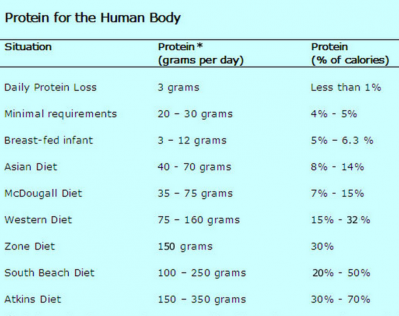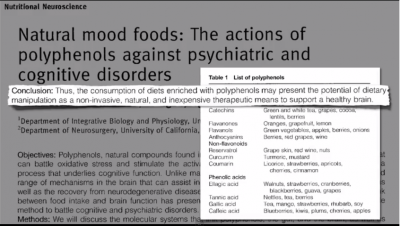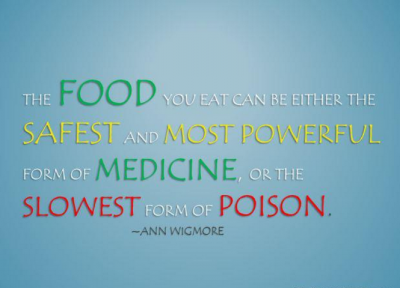According to the Centers For Disease Control and Prevention, antibiotic resistance is one of the world's most pressing public health threats. Dr. Michael Greger explains that a plant-based diet is the best way to avoid "antibiotic-laden foods" and that eating animal products exposes us to antibiotics residues on a daily basis. A recent study measured...
DrCarney.com Blog
A large study involving over 3 million people revealed that eating meat just 2-4 times a month showed a significant increase in the risk of developing abdominal aorta aneurysms. Powerful dietary behaviors associated with the reduction of abdominal aneurysms include minimizing or eliminating animal products, not smoking, and maximizing our consumption of fruits & vegetables....
Have you ever wondered how our American Dietary Guidelines are formed? You may be surprised to see who sits on the Dietary Guidelines Committee.
"The USDA Dietary Guidelines Committee has been made up of individuals funded by McDonald's, Coca Cola, the Sugar Association, the American Meat Institute, candy bar companies, and the egg and dairy boards."
Dr. Michael Greger explains this in more detail in his video below
Seventy percent of office visits involve prescription drug therapy. Tens of thousands of patients die every year due to unintentional drug overdose, drug interactions, or from the side effects from these drugs. Since the majority of today's office visits reflect lifestyle driven diseases, many of these visits/prescriptions could be reduced or even eliminated if the...
A whole-foods, Starch-Smart® diet supplies more than enough protein to meet our daily requirements. "Protein Overload" is an excellent article written by Dr. John McDougall. He explains that "A little protein is good, but more is not better. Protein consumed beyond our needs is a health hazard as devastating as excess dietary fat and cholesterol. Unfortunately, almost everyone on the typical Western diet is overburdened with protein to the point of physical collapse. The public has almost no awareness of problems of protein overload, but scientists have known about the damaging effects of excess protein for more than a century."
Autoimmune diseases afflict more than 23 million Americans, and is one of the leading causes of death for women under the age of 64. Prescribing drugs that suppress the immune system is the most common approach used for treating autoimmune conditions. These powerful drugs, however, come with serious side effects. These drugs can increase the risk of lymphoma, leukopenia, cancer, liver disease, and fatal infections. Thankfully, studies have shown that nutritional excellence can be used as an effective and safe treatment for autoimmune conditions, without the side effects from potentially dangerous drugs.
The Journal of Epidemiology and Community Health published a recent study that followed the diets of nearly 4,000 children from birth to over eight years of age. The study found that "Toddlers who ate a nutrient-rich diet full of fruits and vegetables had higher IQ scores when they reached 8 years of age compared to the toddlers who consumed processed foods full of fat and sugar. The foods that the toddlers ate had a dramatic long term effect on their brain function."
Depression is one of the most common reasons patients go to visit their doctors, especially during the Winter months. As a result, antidepressants are one of the most widely prescribed medications today. Using a whole-food, nutrient-dense, plant-based diet has been very successful in treating patients with mild to moderate depression. Dr. Michael Greger explains in the 6-minute video below how antidepressants work and how plant foods can produce similar results without harmful side effects.
For more information on how a plant-based diet can prevent and reverse depression, see Dr. Carney's Depression and Anxiety Pinterest Board.
Every meal we consume affects our health either in a positive or negative way. If our diets consist mainly of heavily processed foods and animal products, rich in saturated fats, oils, salt and sugar, we are creating an environment that encourages chronic degenerative disease.
Although most people believe that hypertension is a natural consequence of aging, hypertension is actually the consequence from years of consuming a diet rich in saturated animal products, oils, refined sugars, processed foods, and salt. These foods play a major role in promoting diseased arteries.
High blood pressure is not a disease, but a symptom of these diseased arteries. As cholesterol containing plaques begin to line the walls of the arteries, the arteries begin to narrow, stiffen, and lose their elasticity which causes a rise in pressure. Medications artificially treat the symptoms which gives the patient a false sense of security while their disease progresses. By switching to a Starch-Smart® diet, you will be giving your body a chance to heal the arteries, and reverse the disease.
According to the Physician's Committee for Responsible Medicine, "Many Americans still consume substantial amounts of dairy products—and government policies still promote them—despite scientific evidence that questions their health benefits and indicates their potential health risks." A few of the risks associated with dairy consumption include an increased incidence of cancer, heart disease, acne, osteoporosis, gastrointestinal...
A new study published in the New England Journal of Medicine found that high blood sugar levels were associated with an increased incident of dementia. Over 2,000 men and women over the age of 65 were studied for 6-8 years. Those participants that had a blood glucose of 115, compared to 100, had a 15% increased risk of developing dementia. Prior studies done revealed that those with diabetes had an increased incidence, yet this study shows that non-diabetics with elevated glucose levels are at a higher risk as well. Read the article by PCRM here.















